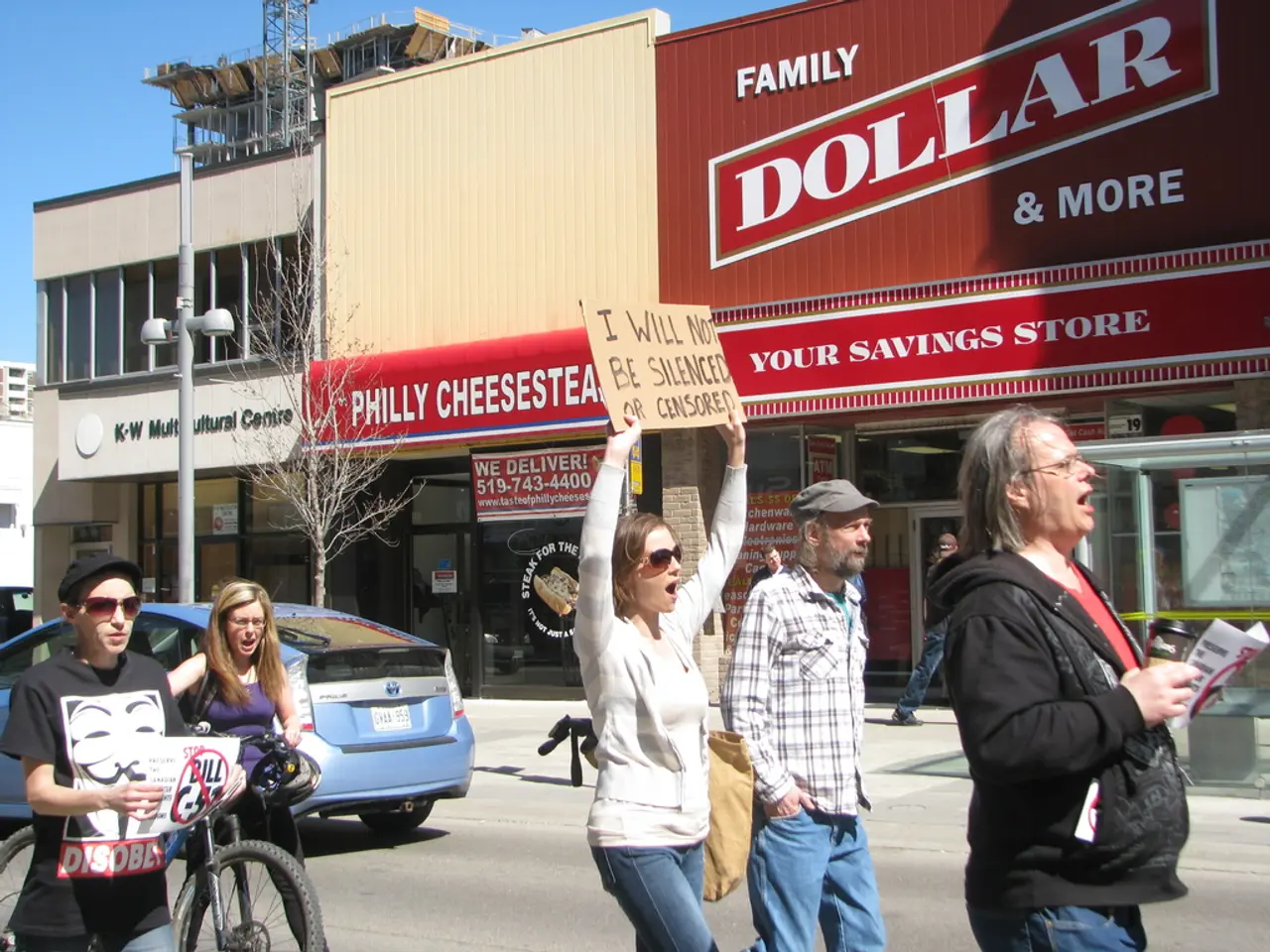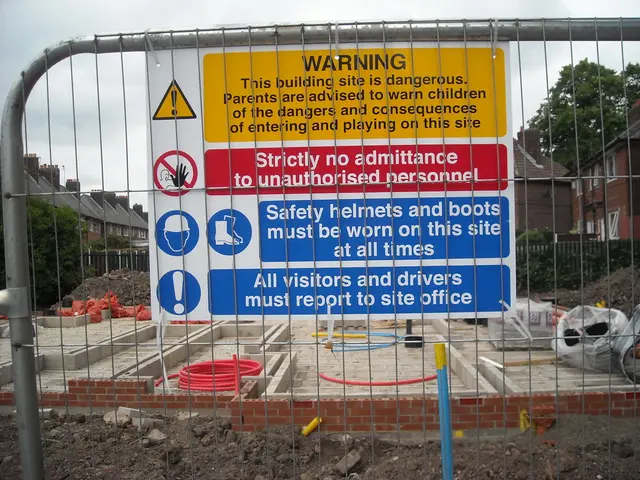Massive strikes sweep through France, marking a significant hiccup in the country's current economic landscape.
France Braces for Massive Protests as Government Faces Budget Crisis
France is gearing up for a significant wave of protests this week, as various sectors of the society, including unions and political parties, have united to challenge President Emmanuel Macron's government over the proposed 2026 budget.
The budget, aimed at saving the heavily indebted country €28 billion, is targeting public-sector jobs, freezing pensions, and capping benefits. The proposed measures have sparked widespread discontent, with approximately 90% of Metro drivers in Paris expected to participate in a strike.
The broad alliance on the left and the National Rally on the far right are challenging Macron's grouping, as none of his picks for prime minister have been able to work with the hung parliament long enough to finalize a budget bill. France's latest prime minister, Sébastien Lecornu, has taken the helm amidst this political turmoil.
Lecornu, a member of Macron's Renaissance party, belongs to the political movement "La République En Marche!" founded by Emmanuel Macron. He was previously a member of the conservative party Les Républicains but left it to join Macron's movement since its beginning in 2017.
The budget plan is the immediate target of the strike, but it also aims to address other grievances such as lingering discontent over pensions and anger at the latest political turmoil. Pharmacists are protesting a cut in the rebate on generic drugs, while journalists at public media companies are striking partly against a plan to merge state-owned broadcasters.
The unions' demands go beyond scrapping the proposed budget cuts. They also include measures to address inequality and overturning the 2023 pension reform. One of the unions' key demands is "fiscal justice", namely more taxes on the highest earners. A tax on the super-rich, known as the "Zucman tax", is one of the unions' demands, proposed by economist Gabriel Zucman.
According to a survey in July, 74% of respondents supported the idea of taxing the super-rich. Another poll conducted this month found that 86% were in favor of a Zucman tax, including most people who voted right-wing.
Thursday's protests, endorsed by unions and political parties, are expected to be far bigger than last week's demonstrations and comparable to the pension strikes of 2023. More than 800,000 people are predicted to demonstrate around the country. The response of the government will determine whether the protests mark the start of a longer battle.
In a bid to appease the protesters, Lecornu has promised to scrap one of the most unpopular measures - the proposal to get rid of two of France's public holidays. However, whether this gesture will be enough to quell the growing discontent remains to be seen.
The political landscape in France is poised for a dramatic shift, as the protests could potentially pave the way for snap elections triggered by Macron in summer 2024. The outcome of these events will significantly impact the future of France's economy and society.
Read also:
- United States tariffs pose a threat to India, necessitating the recruitment of adept negotiators or strategists, similar to those who had influenced Trump's decisions.
- Weekly happenings in the German Federal Parliament (Bundestag)
- Southwest region's most popular posts, accompanied by an inquiry:
- Discussion between Putin and Trump in Alaska could potentially overshadow Ukraine's concerns








